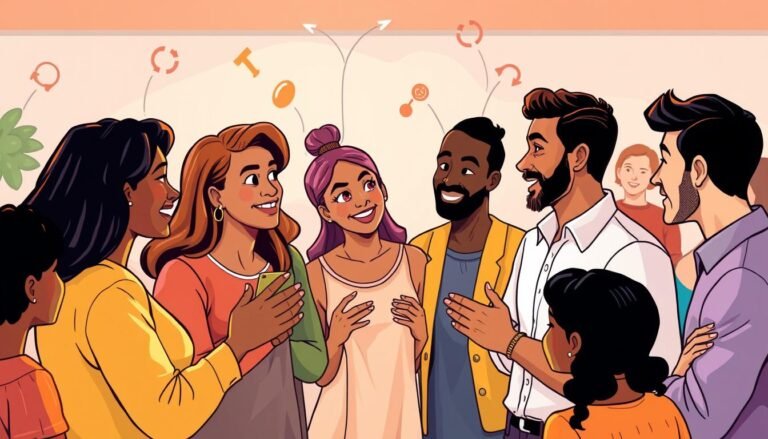Continuous Learning as a Soft Skill
Begin on a journey of continuous learning as a soft skill to ignite personal and professional growth. Propel yourself towards success, adaptability, and competitiveness. Enhance your abilities and open doors to new opportunities. Develop a learning mindset to unleash deeper potential, sharpen skills, and boost confidence. Adapt to industry changes by acquiring new skills and staying informed. Enhance problem-solving skills through practical exercises and critical thinking scenarios. Build resilience by viewing challenges as growth opportunities. Embrace diverse perspectives to foster creativity and improve decision-making. Set clear goals, diversify learning methods, practice regularly, and seek feedback for continuous skill improvement. Foster a culture of learning to cultivate innovation and exploration. Measure success through clear objectives and continuous evaluation.
Key Takeaways
- Continuous learning enhances adaptability and competitiveness.
- It demonstrates dedication to growth and excellence.
- Develops resilience and problem-solving abilities.
- Empowers personal and professional growth.
- Cultivates a mindset open to new opportunities.
The Significance of Continuous Learning
Continuous learning is a key factor in personal and professional growth, propelling individuals towards success and adaptability in today's fast-paced world. By continuously seeking to expand your knowledge and skills, you're actively improving performance and staying competitive in various fields. Embracing a mindset of lifelong learning not only enhances your existing abilities but also opens doors to new opportunities for advancement.
In a world where technology and industries are constantly evolving, those who prioritize continuous learning are better equipped to navigate change and excel in their endeavors. Whether it's mastering a new software, acquiring leadership skills, or staying updated on industry trends, the commitment to ongoing education sets you apart as a proactive and agile professional.
Moreover, by investing in your learning journey, you demonstrate to employers and peers your dedication to growth and excellence. Continuous learning isn't just a choice but a strategic advantage that fuels your progress and positions you as a valuable asset in any environment. Remember, the path to success lies in your willingness to learn and adapt.
Benefits of Developing a Learning Mindset
Developing a learning mindset empowers you to unlock a myriad of benefits that enhance your personal and professional growth journey. Embracing a growth mindset opens doors to continuous development and a deeper understanding of your potential. Here are some key advantages of fostering a learning culture:
- Professional Development: By maintaining a thirst for knowledge and a willingness to learn, you stay relevant in your field, adapt to changes, and advance your career.
- Personal Growth: Cultivating a learning mindset not only sharpens your skills but also boosts your confidence, resilience, and adaptability in various aspects of life.
- Enhanced Problem-Solving: A learning mindset equips you with the tools to approach challenges creatively and find innovative solutions.
- Expanded Network: Actively seeking knowledge and learning opportunities often leads to connecting with like-minded individuals, mentors, and experts, enriching your network and broadening your perspectives.
Incorporating a learning mindset into your daily routine can have a profound impact on your overall growth and success.
Adapting to Industry Changes Through Learning
Embracing the dynamic nature of your industry through continuous learning is key to staying relevant and thriving amidst constant changes and advancements. Industry evolution demands adaptability, pushing you to acquire new skills continuously. By honing your learning agility, you're better prepared to navigate the ever-changing landscape, ensuring your professional growth.
To adapt effectively to industry changes, prioritize staying informed about emerging trends and technologies. Attend workshops, take online courses, and seek mentorship opportunities to broaden your knowledge base. Developing a proactive approach to skill acquisition won't only help you stay ahead of the curve but also open up new opportunities for career advancement.
Enhancing Problem-Solving Skills
When it comes to enhancing your problem-solving skills, practical application exercises and critical thinking scenarios are key. These activities challenge you to think creatively and analytically, honing your ability to tackle complex issues effectively.
Practical Application Exercises
To hone your problem-solving skills effectively, engage in practical application exercises that challenge your critical thinking abilities. Here are some ways to enhance your skills:
- Interactive Simulations: Use interactive simulations to immerse yourself in real-world scenarios.
- Hands-On Activities: Engage in hands-on activities that require you to think on your feet.
- Real-World Simulations: Participate in real-world simulations to tackle complex problems in a controlled environment.
- Practical Exercises: Practice with practical exercises that mirror the challenges you might face in your field.
Critical Thinking Scenarios
Enhance your problem-solving skills by immersing yourself in critical thinking scenarios that challenge your ability to analyze and strategize effectively. Engaging in critical analysis exercises sharpens your mind and hones your problem-solving abilities.
These scenarios present you with complex situations where you must evaluate information, identify key issues, and develop innovative solutions. By actively participating in these problem-solving challenges, you enhance your critical thinking skills, enabling you to approach problems with a strategic mindset.
Embrace the opportunity to tackle diverse scenarios that require you to think outside the box and consider multiple perspectives. Through consistent practice and exposure to varying critical thinking scenarios, you cultivate a valuable skill set that empowers you to excel in problem-solving situations across various contexts.
Building Resilience in the Face of Challenges
In the journey of continuous learning, developing resilience to overcome obstacles is akin to forging a sturdy shield against adversities. When faced with challenges, your ability to bounce back and grow stronger is vital in your quest for personal and professional development.
- Resilience Building Techniques: Embrace setbacks as opportunities for growth. Develop coping strategies such as mindfulness or journaling to navigate tough times effectively.
- Self-Improvement: Continuously work on enhancing your skills and mindset. Seek feedback, learn from your experiences, and adapt accordingly.
- Overcoming Obstacles: Cultivate a growth mindset that views challenges as stepping stones to success rather than insurmountable barriers.
- Growth Mindset: Believe in your capacity to learn and improve. Stay open to new ideas and approaches, fostering a mindset that thrives on challenges.
Leveraging Learning for Career Growth
Unlock the potential of continuous learning to propel your career growth to new heights. Career advancement hinges on your ability to adapt, learn, and grow within your role. To guarantee your professional journey is on an upward trajectory, it's vital to implement effective learning strategies. Embrace opportunities for upskilling and reskilling to stay relevant in a rapidly evolving job market. Seek out courses, workshops, and certifications that align with your career goals and interests.
Develop a habit of setting aside dedicated time for learning each week. Whether it's through online platforms, mentorship programs, or industry events, make learning a priority. By consistently expanding your knowledge and skill set, you not only enhance your value as an employee but also open doors to new opportunities for advancement.
Embracing Lifelong Learning Opportunities
Ready to expand your horizons and grow as an individual?
Embrace new challenges that come your way and actively seek out diverse perspectives.
Embrace New Challenges
Embracing new challenges is the gateway to unlocking your full potential and embracing lifelong learning opportunities. By stepping out of your comfort zone, you open doors to growth and development. Here's why you should embrace new challenges:
- Fosters a Growth Mindset: Challenges push you to learn, adapt, and develop new skills.
- Overcoming Obstacles: Each challenge presents an opportunity to conquer obstacles and emerge stronger.
- Expands Your Knowledge Base: New challenges introduce you to diverse perspectives and insights.
- Boosts Confidence: Successfully tackling challenges boosts self-assurance and resilience.
Seek Diverse Perspectives
To fully embrace lifelong learning opportunities, broaden your horizons by actively seeking diverse perspectives. Different perspectives can provide you with new insights, challenge your assumptions, and expand your understanding of the world. Engaging in open dialogue with individuals from various backgrounds, cultures, and experiences can help you see issues from multiple angles, fostering creativity and critical thinking skills. By actively listening to diverse viewpoints, you can enhance your problem-solving abilities and decision-making processes. Embrace the richness that different perspectives offer and use them as learning opportunities to grow personally and professionally.
| Benefits of Seeking Diverse Perspectives | |
|---|---|
| Provides new insights | Challenges assumptions |
| Expands understanding of the world | Fosters creativity and critical thinking |
| Enhances problem-solving abilities | Improves decision-making processes |
Strategies for Continuous Skill Improvement
When seeking to enhance your skills continuously, exploring new learning methods and seeking feedback are essential strategies for improvement. Here are some effective strategies to help you continuously improve your skills:
- Set Clear Goals: Define what skills you want to improve and set specific, achievable goals to guide your learning journey.
- Diversify Learning Methods: Experiment with various learning resources such as online courses, workshops, podcasts, or mentorship programs to gain different perspectives and approaches.
- Practice Regularly: Consistent practice is key to skill improvement. Dedicate time each day to practice and reinforce what you have learned.
- Seek Feedback: Actively seek feedback from peers, mentors, or experts in the field to identify areas for improvement and gain valuable insights for growth.
Creating a Culture of Continuous Learning
Creating a culture that values continuous learning is essential for fostering growth and innovation within an organization. By fostering curiosity and promoting growth, you encourage employees to seek out new knowledge and skills, leading to personal development and overall progress for the company. Cultivating innovation and encouraging exploration allows for the generation of fresh ideas and the implementation of creative solutions to challenges.
To create a culture of continuous learning, start by providing access to resources such as online courses, workshops, and mentorship programs. Encourage employees to set aside time for learning and experimentation, integrating it into their daily routines. Recognize and reward individuals who actively engage in learning activities, showcasing the organization's commitment to ongoing development.
Measuring Success Through Learning Outcomes
Fostering a culture of continuous learning within an organization naturally leads to the need for measuring success through learning outcomes. To gauge the effectiveness of learning initiatives and guarantee continuous improvement, measuring progress and conducting learning assessments are essential.
Here's how you can effectively measure success through learning outcomes:
- Setting Clear Objectives: Clearly define the learning objectives and outcomes you aim to achieve to provide a roadmap for measuring success.
- Utilizing Learning Analytics: Use data analytics to track progress, identify areas of improvement, and measure the impact of learning initiatives.
- Feedback Mechanisms: Implement feedback mechanisms such as surveys, quizzes, or assessments to gather insights on the effectiveness of the learning programs.
- Continuous Evaluation: Regularly assess learning outcomes to adapt and enhance learning strategies based on the results, ensuring ongoing success and development.
Conclusion
As you navigate the ever-changing landscape of your industry, remember that continuous learning isn't just a skill, but a mindset that can propel you towards success.
Embrace the journey of lifelong learning, for it's the key to enhancing your problem-solving abilities, building resilience, and staying ahead of the curve.
So, keep fueling your curiosity and thirst for knowledge, for in the domain of continuous learning, the possibilities are endless.








